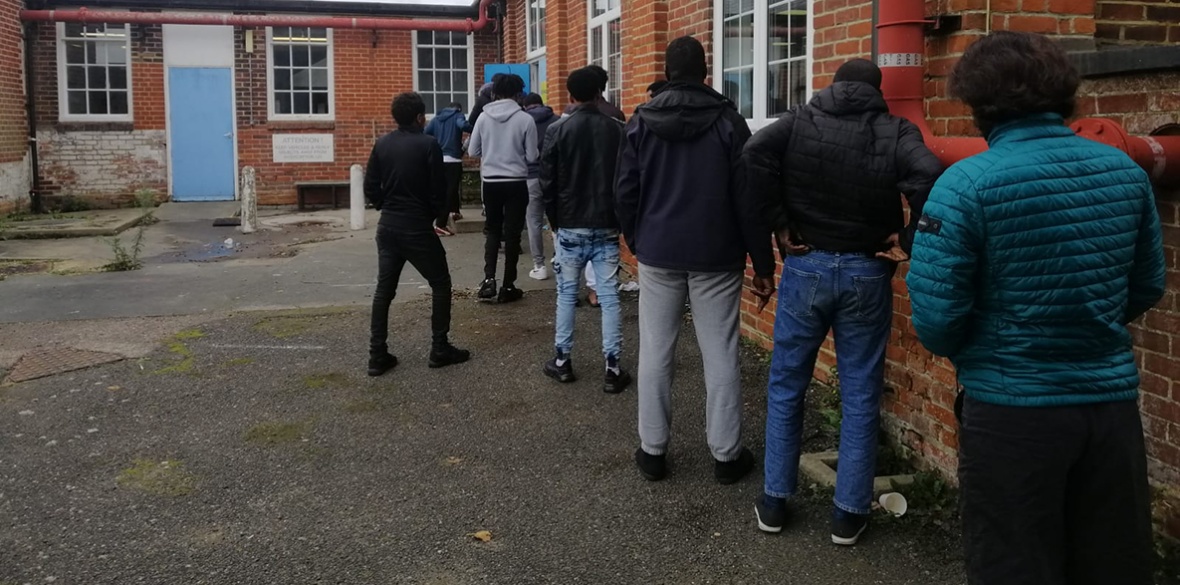This is the last article you can read this month
You can read more article this month
You can read more articles this month
Sorry your limit is up for this month
Reset on:
Please help support the Morning Star by subscribing here
AN ASYLUM-SEEKER staying in a former army camp in Kent has described the facility as “like living in a prison:” he hasn’t left the site for two weeks due to intimidation from the far right.
More than 400 people are now being held at Napier Barracks in Folkestone, which was reopened as emergency accommodation for asylum-seekers last month.
A resident of the barracks — who asked to be identified as MS to protect his identity — told the Star about the poor conditions in the barracks, where people with mental-health issues scream during the night and far-right agitators hurl abuse at the residents from outside the gates.
MS, who is from Yemen, arrived at the barracks almost a month ago. He says he’s fortunate to share a room with just one other person: some are forced to sleep in 14-bed rooms with no partition, making privacy and the option of social distancing impossible.
Residents can only leave the barracks between 7am and 10pm and must inform security personnel where they are going and for how long when they leave the site.
Although the Home Office insists that there is no curfew and that the measure is in place for residents’ safety, MS says that if they are late once, they receive a warning; if they miss it a second time, the Home Office is notified.
Residents believe that this could harm their asylum cases. “We feel like we are being monitored and controlled. Whenever we go out, when we come in we should provide the number, full name, where we’ve been. This is like prison. It’s not normal life.”
Beyond the restrictions, MS said he had not left the compound for the last two weeks because those outside “look at me like I’m a criminal.”
The barracks have been relentlessly targeted by far-right groups, who have attempted to intimidate asylum-seekers leaving the barracks.
In the local shop, MS claims that the cashiers refused to sell his friend cigarettes and security was called to remove them. In another incident a resident was chased by a car up to the gates of the base.
However, MS said that he knows that most British people are “very kind.”
“We do respect the country, we do respect the law — and the people as well. We don’t want to create any trouble here.”
Tudor Etchells from Channel Rescue, a human rights monitoring group, told the Star that the use of army barracks as accommodation makes asylum-seekers more vulnerable to attacks.
“They’re being put in a place where they are more noticeable. I think this is part of that government narrative to … make them look like they need to be detained — to be held away from the rest of society, to protect the rest of society.”
Mr Etchells said that the “prison-esque” appearance of the army base reinforces the false belief that asylum-seekers have “jumped the queue” and have done something wrong by coming to Britain.
“It’s frustrating to see energy being put towards this and not towards safe passage.”
The Yemeni asylum-seeker, like many others, came to Britain across the Channel at the end of July after living in destitution in Spain and squalid camps in Calais.
Most of all, MS said everyone feels “frustrated and disappointed” by the lack of information from the Home Office about their cases.
“We are just waiting, waiting, waiting, in the same place and just suffering,” he said.










